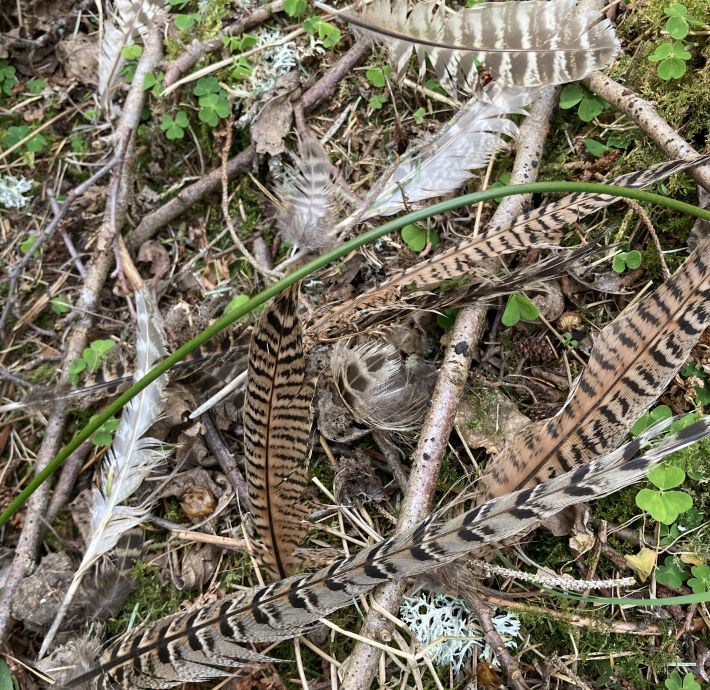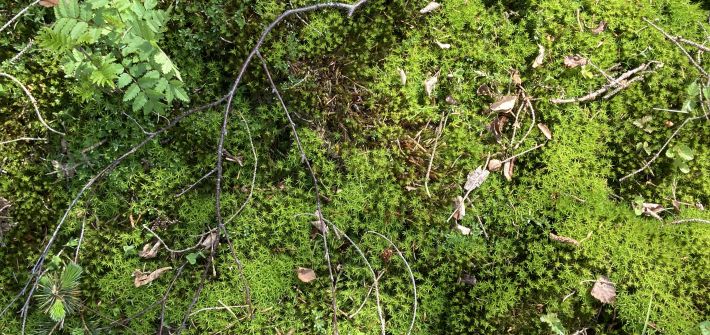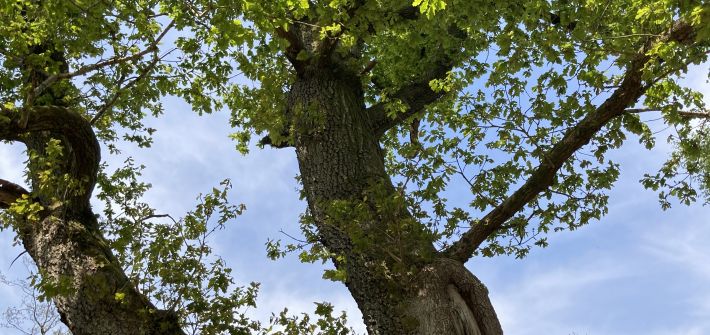Last Sunday I followed a garden bumble bee home from work. It was an ordinary worker foraging for nectar amongst a drift of Ajuga reptans in a Northumberland woodland. The bee rose into the air and sauntered breezily in every direction before I lost it from view. So I listened, kept still, and detected a faint hum a few metres away. I scanned the woodland letting my eyes defocus to better catch the fast small movement of a bee in flight. Nothing. Then I heard rustling near my feet and there it was, crawling over leaf litter. In a few seconds it had disappeared under a blanket.
I thought maybe it would come out so I waited. No longer focused on the hum of a solo bee, I began to hear other insects layered with bird song. I looked up to the bright leaved canopy, enjoyed the scent of woodland in the sun and my own sense of calm.
I had set out to find bees, to learn more about them and their role as environmental agents for UN World Bee Day. To do this I had to slow down. Stop and listen. Look deeply. I observed how Common Carder Bees differ in flight from the Garden Bumble Bee. I interacted peaceably with male Leafcutter Bees as they hovered and zoomed towards me. I identified plants, discovered other wildlife (a slow worm), marvelled at the strange micro-landscapes of moss, and witnessed the disordered trace of a calculated killing.
Back home I read that there are around 270 species of wild-bee in the UK living in a diverse range of habitats - gardens, fields, scrub, woodlands, heath, marsh, meadows, coastal dunes. They live above ground, below ground, on the surface; in tree holes and mouse holes. There are social bees living in communes and solitary bees living and foraging alone. Collectively and globally, bees are the most important pollinator, essential to the health of the world’s ecosystems and sustainable food supplies. They are under pressure from habitat loss, pesticides and climate change.
Last Sunday’s bee hunt led me to new learning and appreciation of bees, but more intriguingly, it made me aware of how I was interacting with the landscape. Tuning my senses to the bee re-sensitised me to nature.
So go follow a bee and "Bee inspired by nature to nourish us all" for #WorldBeeDay.
Join the #NorthEastBeeHunt and learn more about our local bees from the Woodland Trust and Natural History Society of Northumbria.
#southerngreen #landscapearchitecture #landscapedesign #connectingpeopleandplacethroughlandscape
#landarch #biodiversity #nature #habitat
Blog, photos and video by Ben
Quote: "The bees are flying, they taste the spring" by Sylvia Plath
Sources:
- https://www.un.org/en/observances/bee-day
- https://www.woodlandtrust.org.uk/blog/2023/07/types-of-bee-in-the-uk/
- https://www.nhsn.org.uk/the-rare-bees-of-north-east-england/




